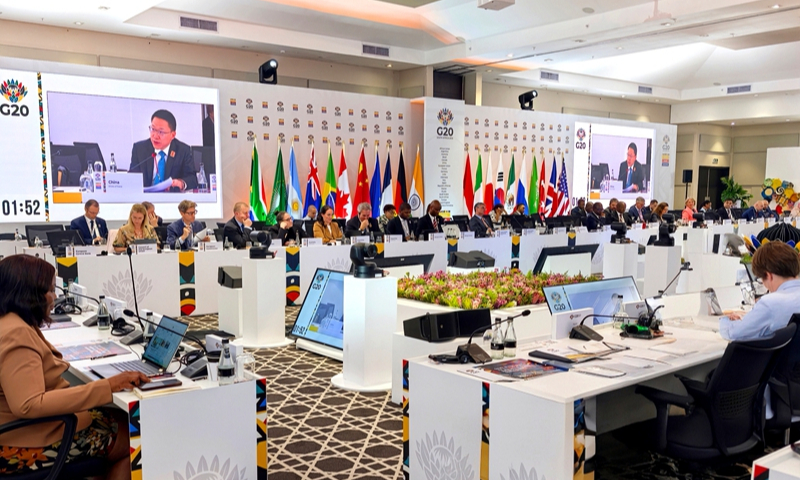China Urges G20 to Champion Free Trade and Multilateralism Amid Global Economic Uncertainty

Durban, South Africa – As global economic headwinds intensify, China’s Vice Finance Minister Liao Min has strongly advocated for the preservation of multilateralism and the promotion of free trade during the recent G20 Finance Ministers and Central Bank Governors meeting held in Durban, South Africa. His call comes at a pivotal moment, with many nations grappling with inflation, supply chain disruptions, and geopolitical tensions.
Minister Liao’s remarks underscored China’s commitment to a rules-based international trading system and emphasized the importance of international cooperation in addressing shared economic challenges. He argued that protectionist measures and unilateral actions would only exacerbate the current difficulties, hindering global recovery and potentially leading to further instability.
“Multilateralism is not merely a concept; it's a necessity,” Minister Liao stated, according to reports from the meeting. “The G20, as a premier forum for international economic cooperation, has a vital role to play in fostering a more stable and predictable global environment. We must resist the temptation of short-term gains through protectionism and instead focus on building a resilient and inclusive global economy for all.”
The Durban meeting saw discussions centered on a range of pressing issues, including managing inflation, tackling debt vulnerabilities in low-income countries, and strengthening financial sector resilience. Minister Liao’s emphasis on free trade was particularly relevant given the ongoing debates surrounding trade barriers and the potential for further fragmentation of the global economy.
Why Free Trade Matters Now
Experts believe that maintaining open trade flows is crucial for mitigating inflationary pressures and ensuring access to essential goods and services. Restricting trade through tariffs and other barriers can lead to higher prices for consumers and businesses alike. Furthermore, free trade can incentivize innovation and efficiency, leading to long-term economic growth.
China’s Stance and Global Implications
China's consistent advocacy for multilateralism and free trade aligns with its own economic development model, which has benefited significantly from global integration. However, China’s position is also viewed by some as a strategic move to counter the growing trend of economic nationalism in certain Western countries.
The G20 meeting concluded with a commitment to continued collaboration and a pledge to address the challenges facing the global economy. While disagreements remain on specific policy approaches, the renewed emphasis on multilateralism, as championed by Minister Liao and others, offers a glimmer of hope for a more coordinated and effective response to the current economic uncertainties. The coming months will be crucial in determining whether this commitment translates into concrete action and a renewed focus on global cooperation.
Looking Ahead
The call for multilateralism and free trade from China’s Vice Finance Minister serves as a timely reminder of the interconnectedness of the global economy and the importance of working together to overcome shared challenges. As the world navigates a period of unprecedented uncertainty, fostering a spirit of cooperation and embracing open trade will be essential for ensuring a prosperous and sustainable future.





